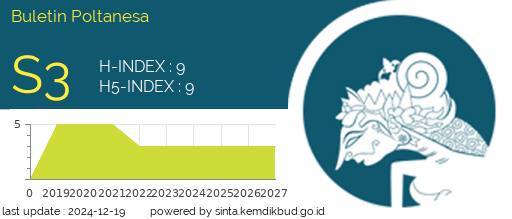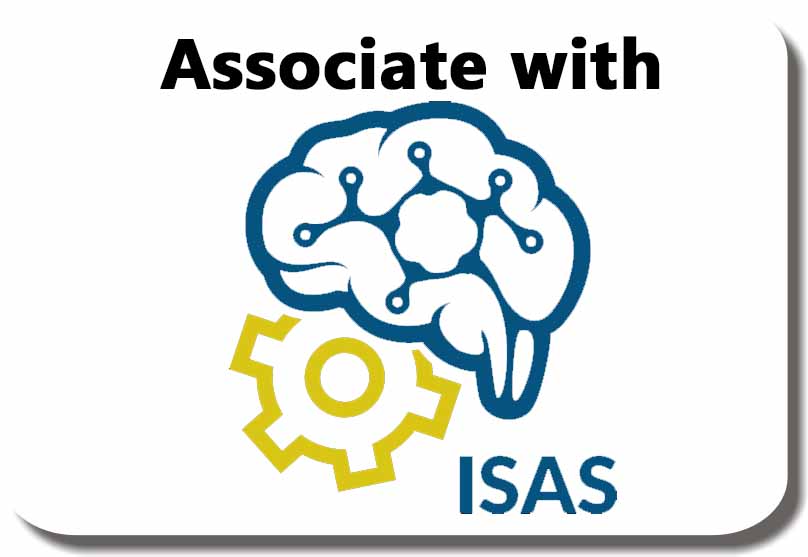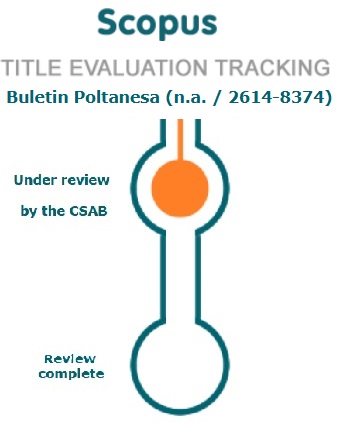Research Dynamics in Social Entrepreneurial Orientation: A Bibliometric Analysis Based on Citations and Publications
DOI:
https://doi.org/10.51967/tanesa.v25i1.3026Keywords:
Sustainability, Innovation, Social Impact, Entrepreneurial Strategies, Academic Trends, Scholarly Output, Interdisciplinary ResearchAbstract
This paper explores the dynamic field of Social Entrepreneurial Orientation (SEO), which melds entrepreneurial tactics with social goals, aiming to address pressing societal issues such as poverty and environmental sustainability. This study examines SEO's academic discourse and impact through a systematic bibliometric analysis spanning thirteen years (2011-2024), employing data from key databases like Scopus and Web of Science. The research illustrates significant growth in SEO scholarship, evidenced by increasing publications and citations, highlighting the field's expanding influence across academic and practical domains. Our analysis utilizes VOS Viewer for trend analysis, author influence mapping, and thematic clusterization, revealing a rich tapestry of collaborative research and evolving themes such as innovation and sustainability. The findings suggest that while the field has robust scholarly engagement, there is room for methodological advancement to enhance the long-term understanding of SEO's impacts. This study underscores the importance of SEO in fostering sustainable business practices and proposes strategic frameworks that can guide future research, policy-making, and business strategies, aiming to integrate entrepreneurial vigor with societal well-being. Through this scholarly inquiry, the paper contributes to a deeper understanding of SEO's role in driving social change and emphasizes the need for global and interdisciplinary collaborations to tackle broad societal challenges effectively.
References
Alarifi, G., Robson, P., & Kromidha, E. (2019). The Manifestation of Entrepreneurial Orientation in the Social Entrepreneurship Context. Journal of Social Entrepreneurship, 10(3), 307–327. https://doi.org/10.1080/19420676.2018.1541015
Álvarez-García, J., Hormiga-Pérez, E., Sarango-Lalangui, P. O., & del Río-Rama, M. de la C. (2022). Leaders' sustainability competencies and small and medium-sized enterprises outcomes: The role of social entrepreneurial orientation. Sustainable Development, 30(5), 927–943. https://doi.org/10.1002/sd.2291
Bota-Avram, C. (2023). Bibliometric analysis of sustainable business performance: where are we going? A science map of the field. Economic Research-Ekonomska Istrazivanja , 36(1), 2137–2176. https://doi.org/10.1080/1331677X.2022.2096094
Chen, Y. C., Arnold, T., Liu, P. Y., & Huang, C. Y. (2023). Understanding the role of entrepreneurial orientation in creating ambidextrous competitive advantage: a comparative-design, longitudinal study. European Journal of Marketing, 57(1), 89–124. https://doi.org/10.1108/EJM-08-2021-0661
Choi, Y., Chang, S., Choi, J., & Seong, Y. (2018). The partnership network scopes of social enterprises and their social value creation. International Journal of Entrepreneurship, 22(1), 1–22.
Dionisio, M. (2019). The evolution of social entrepreneurship research: a bibliometric analysis. Social Enterprise Journal, 15(1), 22–45. https://doi.org/10.1108/SEJ-05-2018-0042
Henderson, F., Hall, K., Mutongi, A., & Whittam, G. (2019). A social enterprise, social innovation, and self-directed care: lessons from Scotland. Social Enterprise Journal, 15(4), 438–456. https://doi.org/10.1108/SEJ-12-2018-0080
Hu, Y., & Pang, X. (2013). Social entrepreneurial orientation and performance of nonprofit organizations: An empirical study in China. Journal of Applied Sciences, 13(19), 3989–3994.
Iskandar, Y., Joeliaty, Kaltum, U., & Hilmiana. (2021). Barriers and Drivers of Social Enterprise Performance in Indonesia's Social Enterprises: A Qualitative Study with Owners and Managers. Jurnal Bisnisman: Riset Bisnis Dan Manajemen, 3(1), 54–67.
Iskandar, Y., Joeliaty, Kaltum, U., & Hilmiana. (2022). Entrepreneurial Competencies, Competitive Advantage, and Social Enterprise Performance: A Literature Review. Proceedings of the International Conference on Economics, Management and Accounting (ICEMAC 2021), 207(Icemac 2021), 192–203. https://doi.org/10.2991/aebmr.k.220204.020
Kraus, S., Niemand, T., Halberstadt, J., Shaw, E., & Syrjä, P. (2017). Social entrepreneurship orientation: development of a measurement scale. International Journal of Entrepreneurial Behaviour and Research, 23(6), 977–997. https://doi.org/10.1108/IJEBR-07-2016-0206
Lim, C. G., Lee, S. Y., & Seo, J. (2020). The signaling effect of ambidexterity of social enterprises on acquiring financial resources in South Korea. Annals of Public and Cooperative Economics. https://doi.org/10.1111/apce.12272
Loukopoulos, A., Papadimitriou, D., & Glaveli, N. (2024a). Unleashing the power of organizational social capital: exploring the mediating role of social entrepreneurship orientation in social enterprises' performances. International Journal of Entrepreneurial Behaviour and Research. https://doi.org/10.1108/IJEBR-04-2023-0423
Loukopoulos, A., Papadimitriou, D., & Glaveli, N. (2024b). Unleashing the power of organizational social capital: exploring the mediating role of social entrepreneurship orientation in social enterprises' performances. International Journal of Entrepreneurial Behaviour and Research, February. https://doi.org/10.1108/IJEBR-04-2023-0423
Lurtz, K., & Kreutzer, K. (2016). Entrepreneurial Orientation and Social Venture Creation in Nonprofit Organizations: The Pivotal Role of Social Risk Taking and Collaboration. Nonprofit and Voluntary Sector Quarterly, 46(1), 92–115. https://doi.org/10.1177/0899764016654221
Mittal, M. K., Kirar, N., & Meena, J. (2018). Implementation of Search Engine Optimization : Through White Hat Techniques. Proceedings - IEEE 2018 International Conference on Advances in Computing, Communication Control and Networking, ICACCCN 2018, 5(2), 674–678. https://doi.org/10.1109/ICACCCN.2018.8748337
Montgomery, A. W., Dacin, P. A., & Dacin, M. T. (2012). Collective social entrepreneurship: Collaboratively shaping social good. Journal of Business Ethics. https://doi.org/10.1007/s10551-012-1501-5
Premadasa, M., Siyambalapitiya, J., Jayawardhana, K., & Fernando, I. (2023). Conceptualizing the Role of Social Entrepreneurial Orientation in the Triple Bottom Line in the Social Enterprise Context: Developing Country Perspective. Sustainability, 15(11), 8759.
Rey-Martí, A., Díaz-Foncea, M., & Alguacil-Marí, P. (2020). The determinants of social sustainability in work integration social enterprises: the effect of entrepreneurship. Economic Research-Ekonomska Istrazivanja , 0(0), 1–19. https://doi.org/10.1080/1331677X.2020.1805348
Satar, M. S., Aggarwal, D., Bansal, R., & Alarifi, G. (2023). Mapping the Knowledge Structure and Unveiling the Research Trends in Social Entrepreneurship and Inclusive Development: A Bibliometric Analysis. Sustainability, 15(7), 5626.
Scheuerle, T., & Schmitz, B. (2016). Inhibiting Factors of Scaling up the Impact of Social Entrepreneurial Organizations – A Comprehensive Framework and Empirical Results for Germany. Journal of Social Entrepreneurship, 7(2), 127–161. https://doi.org/10.1080/19420676.2015.1086409
Turpin, A., & Shier, M. L. (2020). Social entrepreneurial orientation in human service organizations: A scoping review. Human Service Organizations: Management …. https://doi.org/10.1080/23303131.2019.1700580
Weerakoon, C., McMurray, A. J., Rametse, N., & Arenius, P. (2020). Knowledge creation theory of entrepreneurial orientation in social enterprises. Journal of Small Business Management, 58(4), 834–870. https://doi.org/10.1080/00472778.2019.1672709
Downloads
Published
How to Cite
Issue
Section
License
Copyright (c) 2024 Buletin Poltanesa

This work is licensed under a Creative Commons Attribution-ShareAlike 4.0 International License.
The copyright of this article is transferred to Buletin Poltanesa and Politeknik Pertanian Negeri Samarinda, when the article is accepted for publication. the authors transfer all and all rights into and to paper including but not limited to all copyrights in the Buletin Poltanesa. The author represents and warrants that the original is the original and that he/she is the author of this paper unless the material is clearly identified as the original source, with notification of the permission of the copyright owner if necessary.
A Copyright permission is obtained for material published elsewhere and who require permission for this reproduction. Furthermore, I / We hereby transfer the unlimited publication rights of the above paper to Poltanesa. Copyright transfer includes exclusive rights to reproduce and distribute articles, including reprints, translations, photographic reproductions, microforms, electronic forms (offline, online), or other similar reproductions.
The author's mark is appropriate for and accepts responsibility for releasing this material on behalf of any and all coauthor. This Agreement shall be signed by at least one author who has obtained the consent of the co-author (s) if applicable. After the submission of this agreement is signed by the author concerned, the amendment of the author or in the order of the author listed shall not be accepted.











